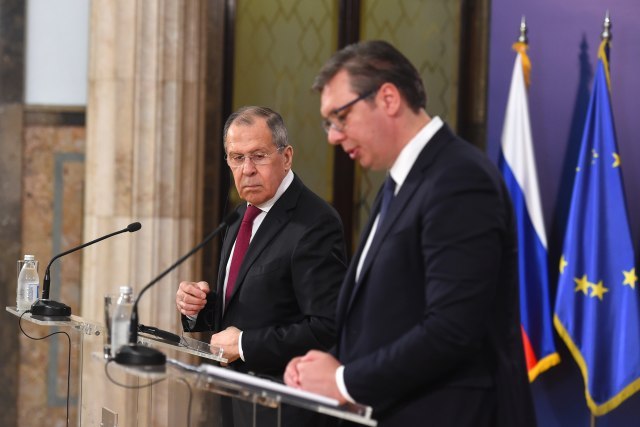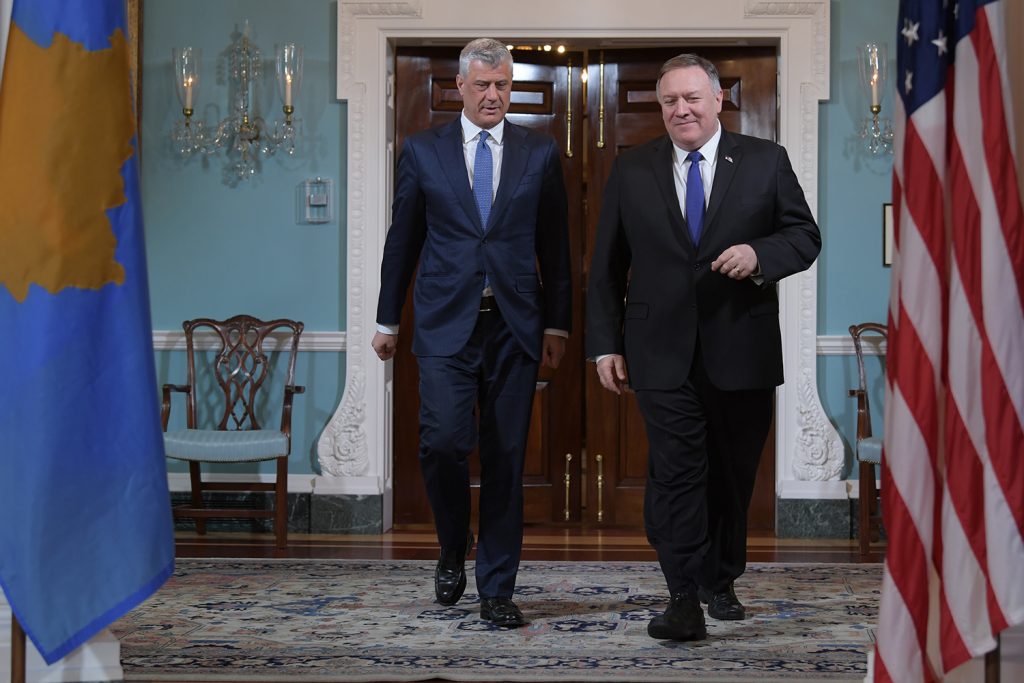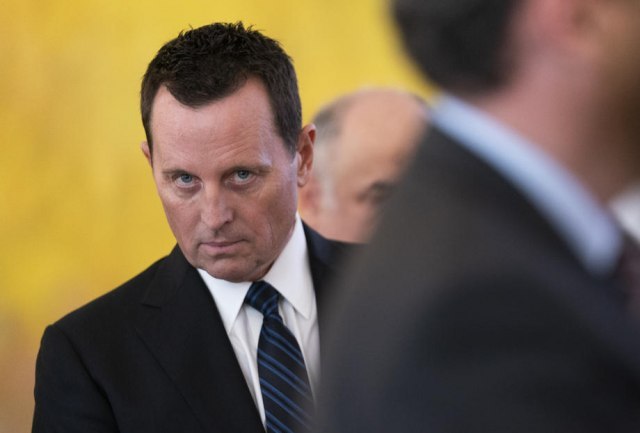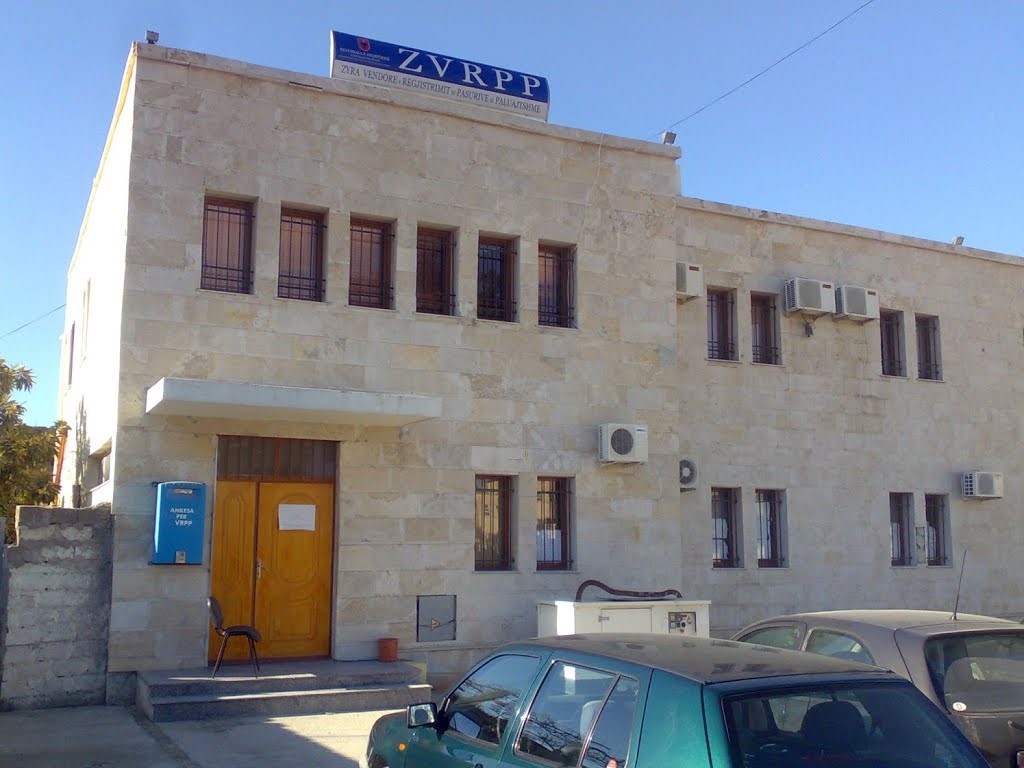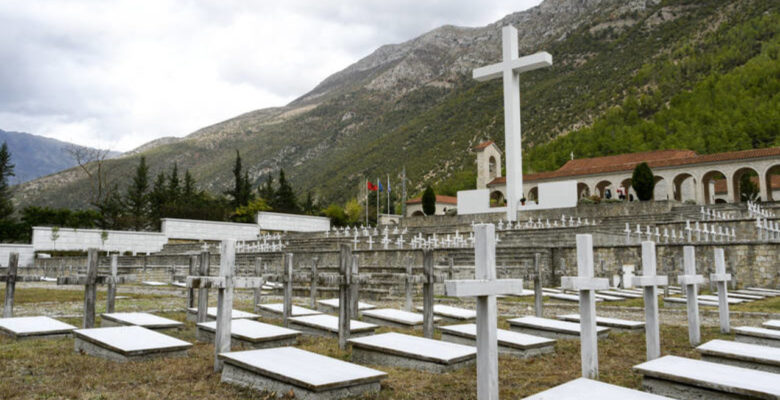"It'll be strange to organize such a big meeting, as the meeting of the Belgrade-Pristina delegations on June 27, and yet to return home without any agreement."
Charles Kupchan, a member of the US Council on Foreign Relations and a Professor at Georgetown University, says, and Radio Free Europe broadcasts.
Although the gathering is taking place at a time when US-EU relations may be at their lowest level since World War II, Kupcan believes Europe must join the process, "because the Balkans are part of it and aspire to EU membership as the ultimate goal". Therefore, the EU must be part of this equation".
Speaking about the idea of correcting the borders, that is, the exchange of territories, Kupchan stated that he knew that this had been discussed for some time.
According to him, that was a very controversial issue until the Trump administration started rejecting it. In case of realization, that would be a very controversial issue in Kosovo and to a certain extent in Serbia, he believes.
"I guess that idea is still in the game, because Thaci and Vucic have considered it in the past. I think it should be on the table - not because I think that negotiations should go in that direction and I am not a supporter of that option. However, if the exchange of territories is the only way for the two countries to reach an agreement, ensuring lasting peace - then let it be part of the talks", Kuphcan said in an interview with RFE / RL.
In his opinion, several things in combination led to the organization of this meeting. One is the change of the Government of Kosovo. Former Prime Minister Albin Kurti was reserved about dialogue and the abolition of the tax on goods from Serbia.
"We still do not know the clear position of the new Prime Minister Hoti on various issues. He issued a statement that seems to indicate the distance between him and President Thaci. However, it is obvious that Thaci still has a key role in the negotiations with Belgrade. The abolition of import taxes opens space for the continuation of the dialogue with Serbia. That is on the trail of progress, having in mind the agreement on the establishment of transport connections at the beginning of the year", he said.
He believes that the meeting in the White House will be more focused on determining the dynamics and starting the process.
"We now see Belgrade's readiness to show good will by suspending the campaign of derecognition of Kosovo's independence. Thus, long-standing rivalries generally come to an end when both sides signal to each other that they are ready for an agreement. So, in the case of Serbia and Kosovo, preparations are taking some time, and that is why some progress can be expected in the talks in Washington. I doubt that this gathering would be given such importance that at least there is no hope that significant progress can be made", Kupchan stated.
He says that it can be speculated that the outcome could be a concrete agreement, first of all on trade, then on the permanent suspension of the derecognition campaign of Kosovo's independence, as well as on the road map, i.e. how relations will be normalized.
"That roadmap could then serve as a basis for the resumption of talks. I think that the European Union must be included in those negotiations, because it has mechanisms at its disposal, primarily EU membership. "It played an important role in directing not only the Balkans, but also the countries in Central Europe in a positive and democratic direction," he explains.
Kupchan pointed out that the meeting in Washington will follow soon after the parliamentary elections in Serbia on June 21, which means, as he says, that Vucic will have an election campaign behind him at the moment when these important negotiations begin.
"Given that a good result is expected from his Serbian Progressive Party, these elections will increase Vucic's room for maneuver and potentially allow him to make compromises that he might avoid if he found himself in a weaker position." Vucic is very skilled in addressing different audiences. portrayed as a pro-European politician, then leaning towards Putin, or being pro-American. In all cases, he does it very well. That is one of his trump cards as a politician under such political circumstances", Kupchan believes.
According to him, we are witnesses that the dialogue between Belgrade and Pristina found itself in the trap of deteriorating relations between the USA and the EU, which reached the lowest level in the last few decades, and perhaps since the Second World War.
"I find it unfortunate that this dialogue is being attempted without coordination, because there is no doubt that the US and the EU have more instruments at their disposal when acting together than when doing so separately." Neither Kosovo nor Serbia has an interest in choosing the side. "As we have already mentioned, relations between the United States and the EU are very complicated now, and many countries are trying to avoid cross-fire," he said.
He believes that the improvement of the economic situation and engagement cannot serve as a substitute for a political solution.
"It simply came to our notice then. There are joint investments between Serbs and Bosniaks in Bosnia-Herzegovina, but that has not helped. There are also cases of economic partnership between Palestinians and Israelis, but that was not of great importance. China and Japan have a large trade exchange, but their relations are very bad. So, at the end of the day, the solution for Serbia-Kosovo relations concerns politics, not trade and investment. "Economic exchange can help and direct relations in the right direction, it can create a positive momentum within the country when leaders find themselves in a situation to make difficult decisions for which they must gain public support," Kupchan stated.
He assessed that the trip to Washington is important, but it also causes some concern in Europe.
"But I do not think that this is a move that will permanently put Brussels aside. "I think that the EU will continuously and strongly engage diplomatically in the negotiations between Pristina and Belgrade," Kupchan concluded.




